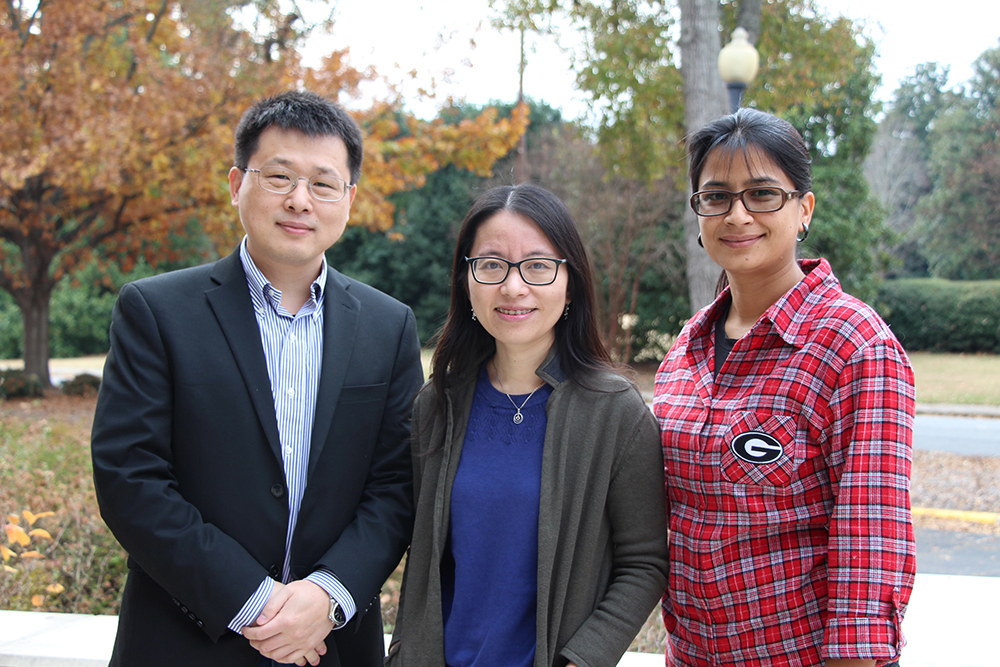Rural communities experience more deaths each year related to poor cardiovascular health compared to city dwellers, and that gap is widening.
Now, a team of researchers from the University of Georgia and the Icahn School of Medicine at Mount Sinai are using a new, robust form of computer modeling to find ways to reduce this urban-rural divide in Georgia and New York.
The project, supported by a $1.5 million grant from the National Institute on Minority Health and Health Disparities, will use agent-based modeling to simulate the impact of real-world policy interventions. It is the first to collect data and simulate policies at the county and state levels.
Agent-based modeling was first developed to assess food environments in urban settings, said Donglan “Stacy” Zhang, project leader and assistant professor in UGA’s College of Public Health.
The model takes into account many factors that influence individuals’ health behaviors, including sociodemographic factors, the local environment, and personal preferences and beliefs.
Zhang saw a need to adapt the model to work for rural and often resource-poor areas.
“The places that need evidence-based policy simulations the most are areas with limited resources,” she said. “Rural areas do not have the resources that many urban communities have, so given scarce resources, they have a higher need for evidence to help guide their policy decisions.”
Increasingly, systems science and simulation modeling are playing an important role in the selection and implementation of policies and interventions to help people improve their overall health.
Health is determined by more than individual choices, said Zhang. There is a system of clinical and community factors that contribute to cardiovascular health.
For example, provider shortages and the ability to pay for health care affect a person’s access to regular care, while their community environments, such as access to heart-healthy foods and safe places to exercise, also shape lifestyle and overall health.
“A model can help us understand the whole system and understand the interplay of complex factors,” said Zhang.
Zhang and UGA public health collaborator Janani Thapa, recently published a study showing that the agent-based model could be successfully translated to rural communities, laying the groundwork for this larger, more ambitious study.
The current project is collecting data from federal, state and local sources, including from the Centers for Disease Control and Prevention, medical claims records, existing cohort risk scores, and local community organizations.
The focus on local data and outcomes is the unique feature of the team’s simulation model, said Zhang. Many existing models with a national-level focus, she explained, are less useful in informing local policies and interventions.
“Most interventions are implemented at the community level. It’s really important for us to understand the local population characteristics and local environment in order to tailor interventions and improve the health of these communities,” she said.
The team will evaluate the impact of improved health care delivery and community-based public health interventions on cardiovascular health. “Such interventions include home telehealth for diabetes monitoring, insurance copayment reductions for highly valued services, increasing access to fresh produce, increasing tobacco excise taxes, and diet and physical activity promotion programs,” said Zhang.
The investigators also want to examine the different political and economic climates that may shape health outcomes in Georgia and New York.
“The two states have very different economic conditions and political values,” said Zhang. “So, we will look at the variation in the impact of the same policy on populations in both states.”
The team has begun collecting data and will be running their first simulations in the coming months. The team members plan to roll out their findings and policy recommendations to local community leaders and state and federal policymakers throughout the four-year project.
The full project team includes Donglan “Stacy” Zhang, Yan Li, Janani Thapa, Lan Mu, Zhuo “Adam” Chen, Andrew Moran and José Pagán.
